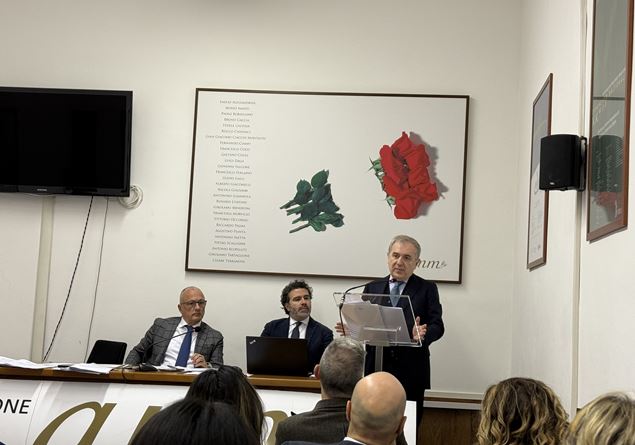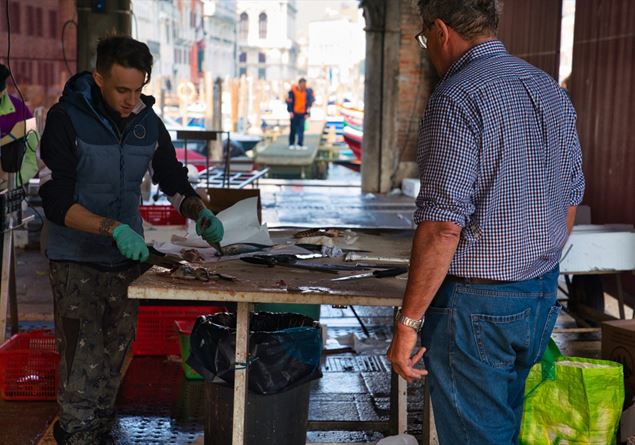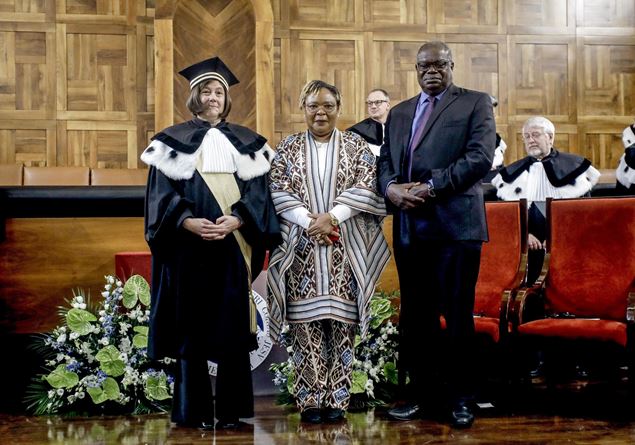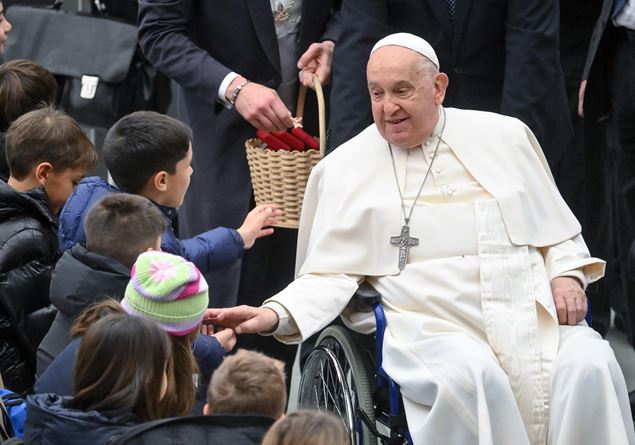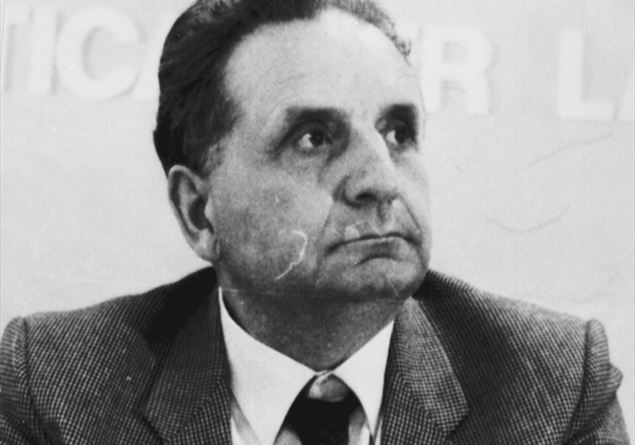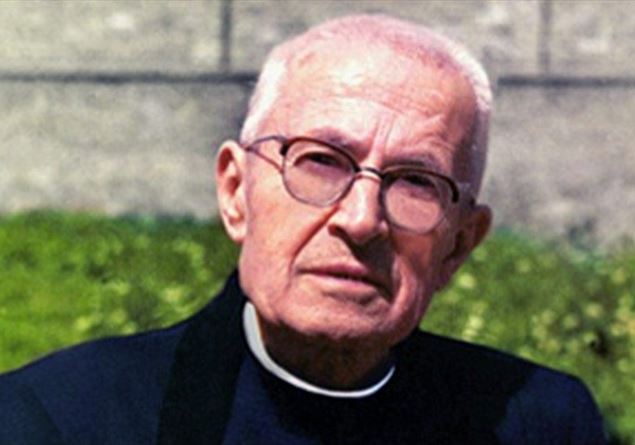
The 2025 Jubilee, which began with the opening of the Holy Door of St. Peter’s Basilica on the evening of 24 December 2024, is under the banner of the theological virtue of “hope”that “hope” – writes Pope Francis in the Bull announcing the Jubilee – “which does not disappoint” (Rm 5,5). In times of tensions and wars at an international level, hope is the torch to keep lit to overcome, without ever becoming discouraged, the difficulties that gradually arise on the paths of humanity on the move.
“Where does humanity walk, how does it walk, towards what goal does this humanity that always renews itself on the face of the earth walk? Humanity is like a great river that flows into eternity. Will she be safe? Will it be lost forever?”. Thus Blessed Alberionefounder of the Pauline Family, expressed himself by reflecting on the meaning of life and history, proposing Jesus, Way, Truth and Life as the star that illuminates and guides the life of every man, filling it with light and hope. This is the meaning of this Jubilee 2025, as well as of all the Jubilees of the past: an opportunity for a “live and personal encounter with the Lord Jesus”, as the Pope reminds us in the Bull “Spes non confundit”.
Blessed Alberione experienced various Jubilees, including that of 1950, in which he invited his children, and all Christian people, to a radical change of life. Thus he writes in a document of the time: “The Jubilee requires true conversion of heart, which does not simply consist in the state of grace or in the absence of every serious sin. It implies a positive movement, a conscious and desired attitude of opposition and fight against all guilt. We need to fight and win.” That is, it is a real journey, in which God plays the most important part, that of making his grace available and donating – without which nothing can be done – but then man is called to collaborate in this “rebirth”, this transformation and renewal of the mind, heart and lifestyle. Man finds himself on a journey that requires the collaboration of both grace and freedom, God and man walking side by side, where in all human frailties and falls God intervenes who, like a mother, continually and with love raises her baby. “He who created you without you will not save you without you”, Saint Augustine reminds us.
In the same document the Blessed also mentions a look towards the past, with a view to living a new life in the present and moving towards the future: “With regard to the past: spirit of penance and reparation, for every capital vice. Concerning the future: the soul, in the feeling of its own weakness and in the anticipation of temptations, prays, avoids opportunities, is determined to do everything and suffer everything, so as never to offend the Lord voluntarily: neither in serious matters nor in mild.” Don Alberione, with his style of embracing “the whole” – typical is his way of speaking of Jesus as Way, Truth and Life precisely to understand “the whole of Christ”, as he also speaks of man as mind, will and heart precisely to understand “the whole man”, and finally propose the path so that the whole Christ is in the whole man – proposes to the Jubilee pilgrims of that time, as well as to us today, to take this opportunity to summarize our lives, take a look at the past to recognize its fragility and weaknesses and repent of it with all our heart, but above all then resolutely orient ourselves towards the present and future with the desire and purpose of doing everything possible to walk on the path of good, always and everywhere, also ready to face any difficulties and suffering with courage, always relying on “prayer”, drawing strength from God, towards whom we want increasingly grow in intimacy and friendship, avoiding in everything to follow paths that are not according to his will, which – as Blessed Alberione would tell us – is always the “greatest good” for man: in fact, one cannot imagine a greater good for man man who has the desire and plan of God for him, who is a good Father beyond all possibility of understanding.
The Pope has chosen the term “Pilgrims of Hope” as the motto for this Jubilee. And this is the year dedicated to hope, this virtue that sometimes seems the smallest in comparison to the other two pillars of the trio of theological virtues: Faith and Charity. Charles Peguy reminds us, however, that “hope, says God, is what amazes me… This is amazing. Let those poor children see how things are going and believe that it will be better tomorrow morning…”. And speaking of the theological virtues he continues: “Faith is a faithful Bride. Charity is a Mother. Hope is a little girl… Yet it is this little girl who will cross the worlds… Little Hope advances between her two big sisters and is not even noticed… the Christian people only pay attention to the two big sisters… And they willingly believe that they are the two older ones pulling the little one by the hand. In the middle of. Between the two of them… Blind as they are, they don’t see that she is in the middle, pulling her big sisters behind her. And that without her they would be nothing. If not two already elderly women. Two women of a certain age. Wasted by life. It’s her, the little one, who drags everything along. Because Faith only sees what is. And she sees what will be. Charity loves only what it is. And she, she loves what will be.” Truly hope is the virtue that urges and drags, it is “a safe and firm anchor for our life” (Hebrews 6,19) placed in heaven, because that is where we belong, and it is towards that direction that hope pushes us to walk, so that we can find the peace that our restless heart continually seeks.
Antonio Rosmini speaks of Christian hope as a healing force “because knowing that there is a very wise and excellent providence, we can expect with certainty that even events that seem sad to us will end for our greater good and to the glory of God”. God makes all events work for the good of those who love him and hope in him. Our Blessed clearly defines this theological virtue: “Hope is that supernatural virtue by which we trust in God and from Him we expect eternal life and the graces necessary to deserve it down here with good works. It is virtue that gives us strength in the various difficulties of life. It is the healing balm that calms our hearts troubled by passions and gives strength to our will in the fight against all our spiritual enemies.”
We are invited to have eyes and hearts full of hope in this Jubilee year and then for the rest of our lives. Only in this way can we transform the desert that is often the experience of our personal and social life into a stupendous garden where we experience God as truly present, truly close, truly a good Father, always and everywhere available to cheer up, bless and renew his children. .
On 7 December 1965, the closing day of Vatican II, Paul VI, with the apostolic constitution Mirificus eventus, announced an extraordinary jubilee (from 1 January to 29 May 1966) as a response to the “extraordinary event” of the Council and as an opportunity for the Local churches could begin to do just that: “We know that there is the extraordinary Jubilee granted by Pope Paul VI1. And so that we can receive this great gift, this gift: so that we can purify everything that has happened in the past year and years, yes, with a great plenary indulgence, and that, therefore, with a good will to begin a life ever more fervent according to your commitments, your apostolates: apostolate that concerns the liturgy, priestly service and Eucharistic service, yes. Because we are all servants of God, humble servants, yes.”




